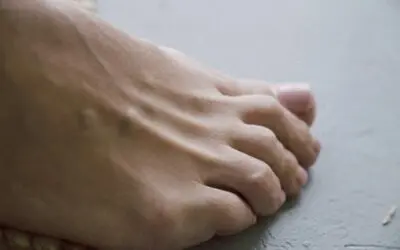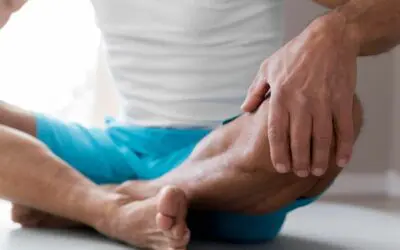Patients in podiatrists’ offices everywhere have sat through many a confusing discussion with their foot doctor over two topics that are often used interchangeably (but shouldn’t be). The topics in question are flat feet and collapsed arches.
This guide will ensure everything is clear about the two, so you can visit your local podiatrist and confidently understand what they say.
Flat Feet From Birth
Around one-quarter of the population has flat feet because their arches never developed in childhood. Individuals with flat feet may notice that their entire foot makes contact with the floor when they stand. People with flat feet may have foot and ankle pain, swelling, and discomfort. They may be more prone to ankle sprains, plantar fasciitis, or arthritic knee problems.
Children typically begin to develop arches around six years old.
One way to determine how much arch you have is to step on cement with a wet foot. Your footprint will be able to show you how much of your arch is making contact with the cement and how much is arched. If you are looking for an excuse to go swimming, this is it.
Collapsed Arches
Much like flat feet (and hence the confusion between the two), collapsed arches leave an individual with complete contact on the floor when standing. Unlike flat feet, however, collapsed arches occur on feet that previously had an arch. Collapsed arches may develop at any time during your adult years.
The main identifying difference between flat feet and collapsed arches is when the foot first started being flat. For individuals who previously had visible arches on their feet, their flat feet would be from collapsed arches. Individuals whose arches never developed have flat feet.
Why Are My Feet Flat?
True flat feet are a genetic phenomenon, so go ahead and blame your parents if you never developed arches. Since it is genetic, you might want to check your kids’ arches, too. Usually, more than one individual in a family has flat feet.
Collapsed arches, however, are due to the wearing down of the muscles in the bottom of your foot. Ligament damage, muscle imbalances, weight gain (including from pregnancy), and repetitive stress on your feet can all contribute to collapsed arches, so mom and dad aren’t to blame for these.
Potential Problems
Flat feet and collapsed arches may or may not cause problems. Individuals with flat feet may never notice any adverse symptoms. Individuals with collapsed arches, however, are more likely to experience complications. Possible problems from flat feet include:
- Trouble standing on tiptoes
- Unevenly wearing out shoes
- Swelling or pain in the foot or ankle
- Arch pain
- Plantar fasciitis
- Ankle sprains
- Knee problems
What Can I Do?
If you don’t experience any negative symptoms with your flat feet or fallen arches, you don’t need to do anything. If, however, you do begin to feel the painful symptoms, there are some ways you can remedy it.
When it comes to helping flat feet, it’s all about providing additional support to your ground-hugging arches. Custom orthotics, also known as arch supports, are specifically designed with the help of a podiatrist to help give your feet the specific support they need. Supportive footwear is also helpful, but it won’t necessarily target your unique needs. Orthotics and supportive footwear can be helpful for individuals with either collapsed arches or flat feet.
Strengthening the muscles surrounding your arches will help rejuvenate them. Daily physical therapy can help you build up those muscles. A physical therapist or podiatrist should be able to help you put together an exercise regimen just for your feet, whether your arches recently collapsed or you have had flat feet from birth.
If you know the reason your arches have collapsed, addressing the underlying issue will help. If your arches have collapsed from overuse, rest will be an important part of your healing process. You may need to modify your activity even after a resting period. If you have fallen arches due to additional weight on your feet and ankles, losing weight may help alleviate the pressure on your arches.
If you are concerned about how much contact your feet make with the ground, give your local podiatrist a call. They can help you determine the best course of action for your specific plantar plight. And now you can confidently hold a conversation about flat feet with them and tell them whether your arches have recently collapsed or if you have been flat-footed for years.



